 Research Update
Research Update
14
MayOn May 12th, Oliver Hart, a Harvard professor and one of the winners of the 2016 Nobel Prize in Economic Sciences, came to Renmin University of China to attend the 4th Great Mind China Forum and to discuss with participants the modern enterprise theory and China State-owned enterprise reform. This is the first time after Professor Hart visited Beijing in 1994.

The Fourth Great Mind China Forum was jointly sponsored by the National Economics Foundation (NEF) and the National Academy of Development and Strategy (NADS) of Renmin University of China under the theme of "The Theory of the Firm and China SOE Reform", hosted by Prof. Nie Huihua, Deputy Dean of NADS of Renmin University of China.
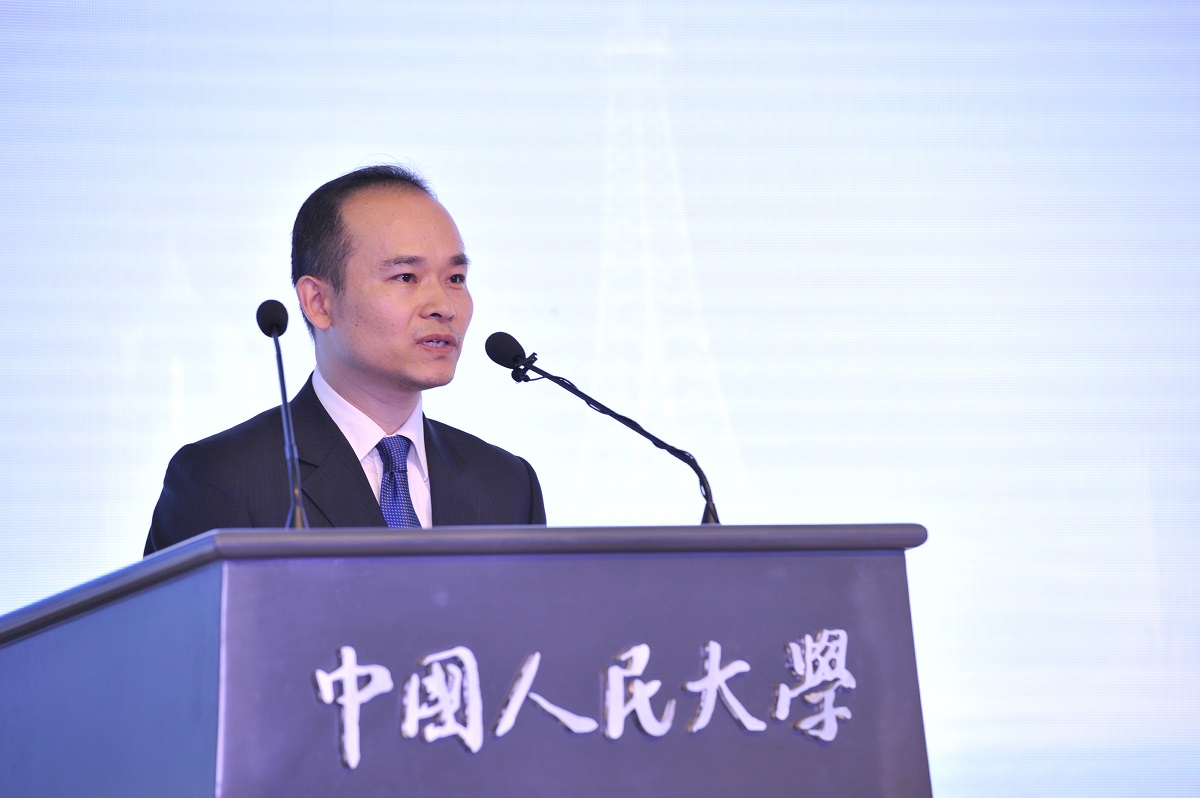
Xia Bin, State Council Counselor and Chairman of NEF, pointed out in his speech that the annual “Great Mind China Forum” has established a platform for international ideological exchanges and has invited renowned scholars at home and abroad to have in-depth discussion and extensive exchanges on a specific field and perspective, thus promoting the development of economic sciences. Xia Bin emphasized that while the world is currently in the period of reflecting on economics and encouraging innovation, if Chinese economists want to innovate theoretically, they must base on a large number of readings, studies of various ideas, and various schools of thought, then become the mastermind of ideas essence, it is possible to have some innovation.
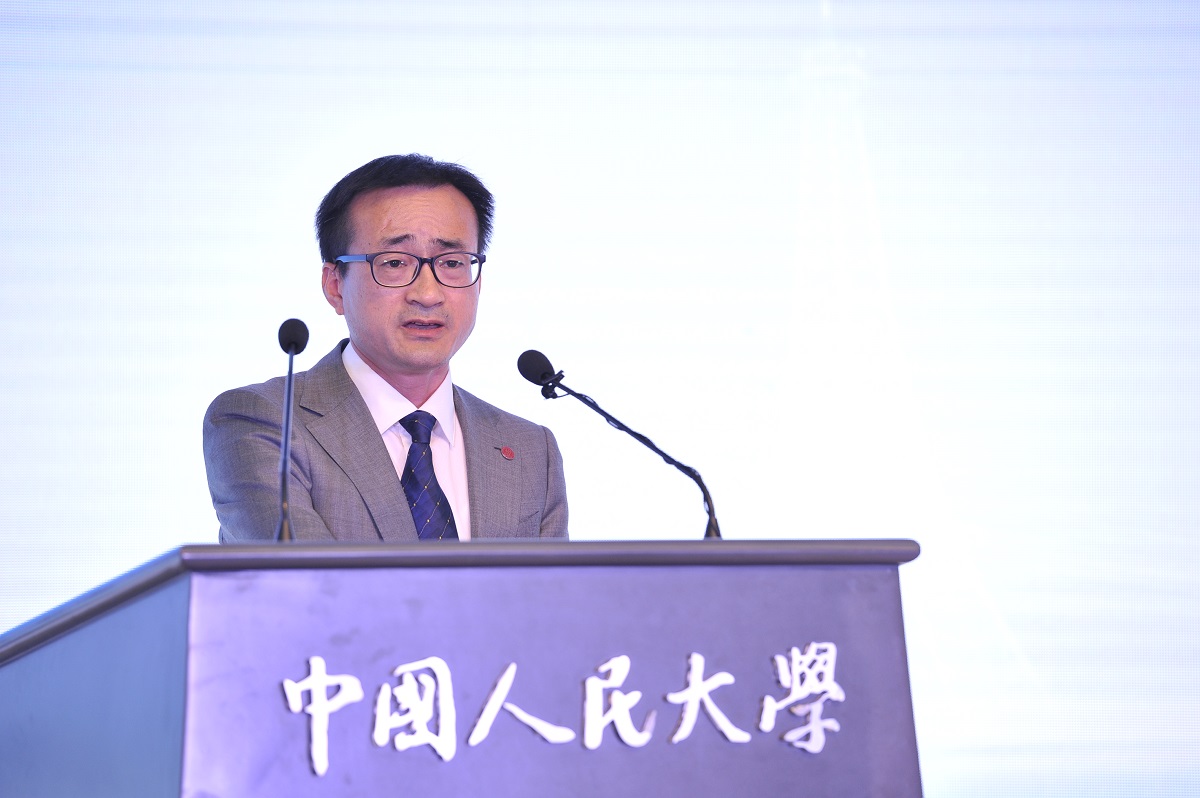
Liu Yuanchun, Vice President of Renmin University of China, welcomed Professor Hart and the distinguished guests in his speech. He said that while China is ushering in a wave of reform and opening up of the third round of state-owned enterprise reforms, it is timely to discuss state-owned enterprise reforms and the theory of the firm. At the Third Plenary Session of the 18th CPC Central Committee, China proposed a comprehensive top-level package of reforms, the state-owned enterprise reform is the most basic and one of the most important reforms. At present, the theory of the firm with Chinese characteristics has not yet been truly established. The reform of Chinese state-owned enterprises needs the support of strategic ideas and theoretical ideas. Liu Yuanchun pointed out that in the new era, China must establish a globally competitive, world-class enterprise that requires a true and comprehensive reform of its current state-owned enterprise system. It must also uphold socialist orientation, absorb the latest developments in modern social science, and promote traditional wisdom, so that the state-owned enterprises are able to adapt to the new era of competition. The NADS of Renmin University of China, as the first batch of pilot units for high-end think tanks in the country, organizes such high-end seminars today and builds platforms and channels for international exchange, which is also its responsibility.
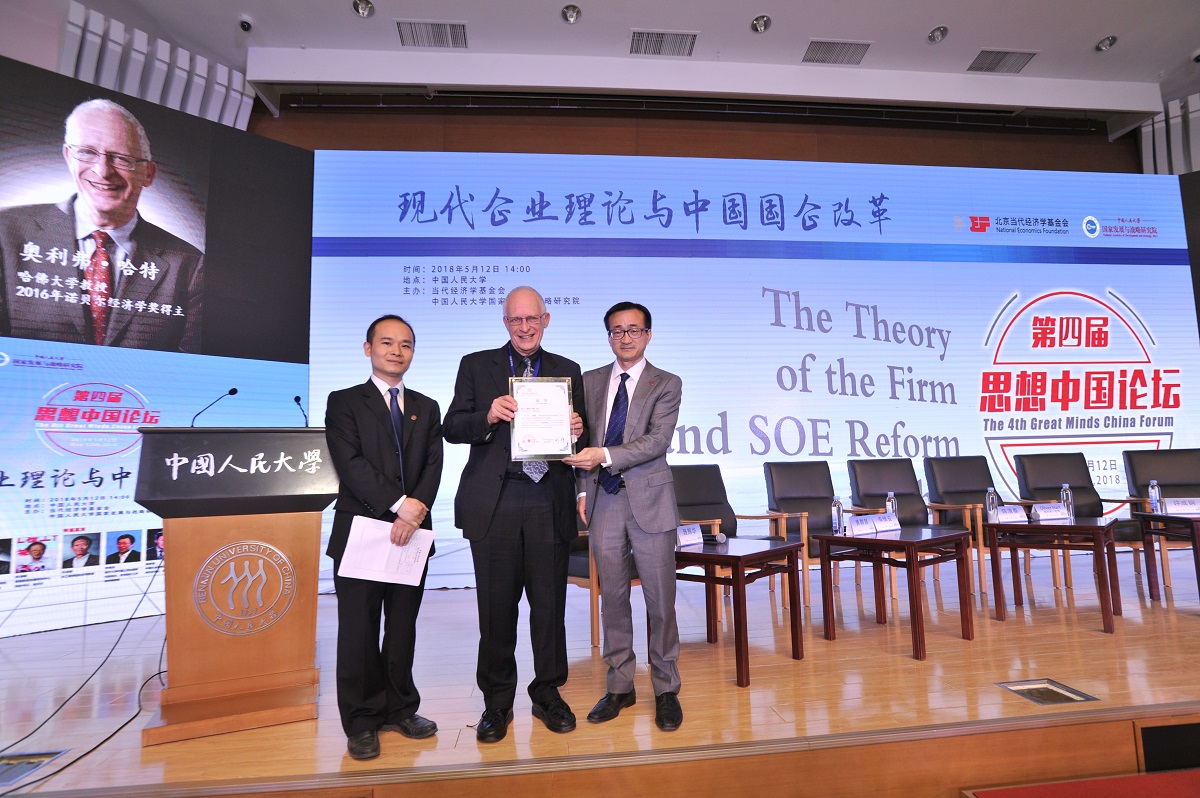
Vice President Liu Yuanchun also issued a letter of appointment to Professor Hart on behalf of Renmin University of China and invited him to become a guest speaker at the International Academic Master Class of Renmin University of China.

In the following keynote speech session, Professor Hart shared the research results of modern enterprise property rights and control rights with the theme of "Incomplete Contracts and Control." Professor Hart proposed that the contract has incompleteness. When the contract does not stipulate a certain behavior, the residual control right of this behavior is often controlled by the asset controller. The residual control right is as rare as other commodities. In the interrelationship of enterprises, the more people who have the residual control rights, the more investment value they have. When the two companies are merged, the residual control rights of the merged company will be reduced, the corresponding rights will be reduced, and the incentive will be less. This is the advantage of independence and the cause of many entrepreneurial behaviors.
Professor Hart further pointed out that the concept of residual control rights in corporate finance is important to understand the factors that affect corporate finance. The theory of complete contract can help us understand the financial contract relationship between startups, venture investors and entrepreneurs. So, in the end who should have control right? Professor Hart believes that it is possible to make a distinction between specific situations through debt contracts; in addition, voting rights for decentralized stocks are also an option. A dual shareholding structure has also been proposed, namely that part of the equity is held by insiders of the company and the other part is sold in the open market. At present, many high-tech companies have chosen a dual ownership structure, such as Alibaba, Google, Facebook and so on. Professor Hart emphasized that this structure is allowed, but there must be some design of exit clauses.
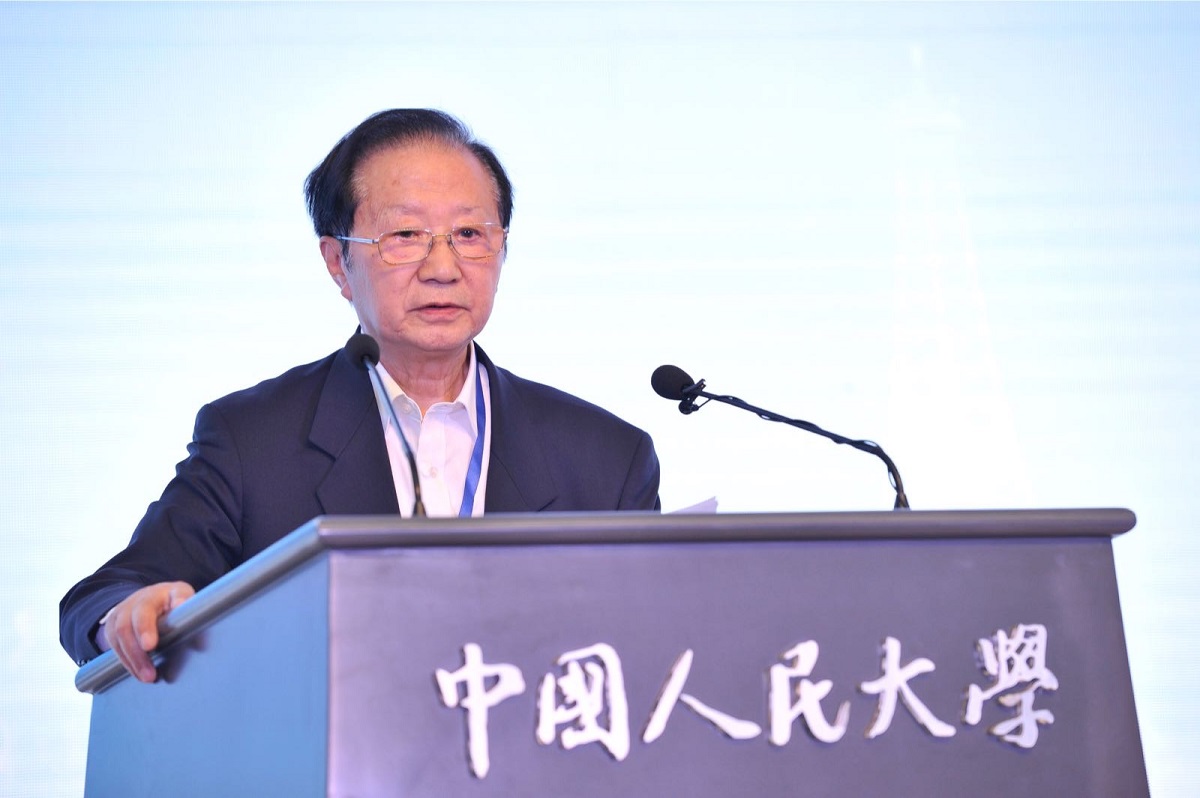
Chen Qingtai, party secretary and deputy director of the State Council Development Research Center, pointed out in the keynote speech that the contents of the Third Plenary Session of the 18th CPC Central Committee on State-owned enterprise reforms are particularly noteworthy in three aspects: First, the emphasis has turned from “management companies” to "management capital", the second is to allocate part of the state-owned capital to enrich social security funds, and the third is to develop mixed ownership. Among them, the "management capital" reform is at the basic level. Specifically, the management of capital realizes the reform of operational state-owned assets from the state-owned enterprises to the value forms, thus achieves the separation of government and capital and the separation of government and enterprises, to lay the foundation of modern enterprise system. Second, after the capitalization and securitization of state-owned assets, the ownership of state-owned investment institutions is separated from the property rights of corporate legal persons. This frees the tied relationship between state-owned assets and specific enterprises and liberates the liquidity and efficiency of state-owned assets. Third, under the system of managing capital regardless of the enterprise, the government can be placed in a position of detachment and can correctly handle the relationship with the market. This reduced the burden of government as well.
Chen Qingtai further pointed out that at present, China’s reform of state-owned enterprises from “management of enterprises” to “management of capital” requires the reform of existing state-owned asset management systems to adapt them to the requirements of a market economy, and establish a state-owned capital commissioning agency with financial constraints as the main line. Institutions; We must in-depth understand the concept of management capital and the concept of state-owned enterprises and different approaches, focus on promoting top-level state-owned enterprises to reform, in-depth study of the institutional framework for the management of capital, implementation programs and policy measures; reform state-owned assets supervision methods and transfer from administrative management functions of managing people, issues and asset to performing the responsibility of the legal person and investor. In addition, the attributes and operating mechanisms of the investment operation agencies that live between the government and the market cannot be ignored. The function conversion and efficiency improvement of state-owned capital will be achieved mainly through the effective operation of investment operation agencies.
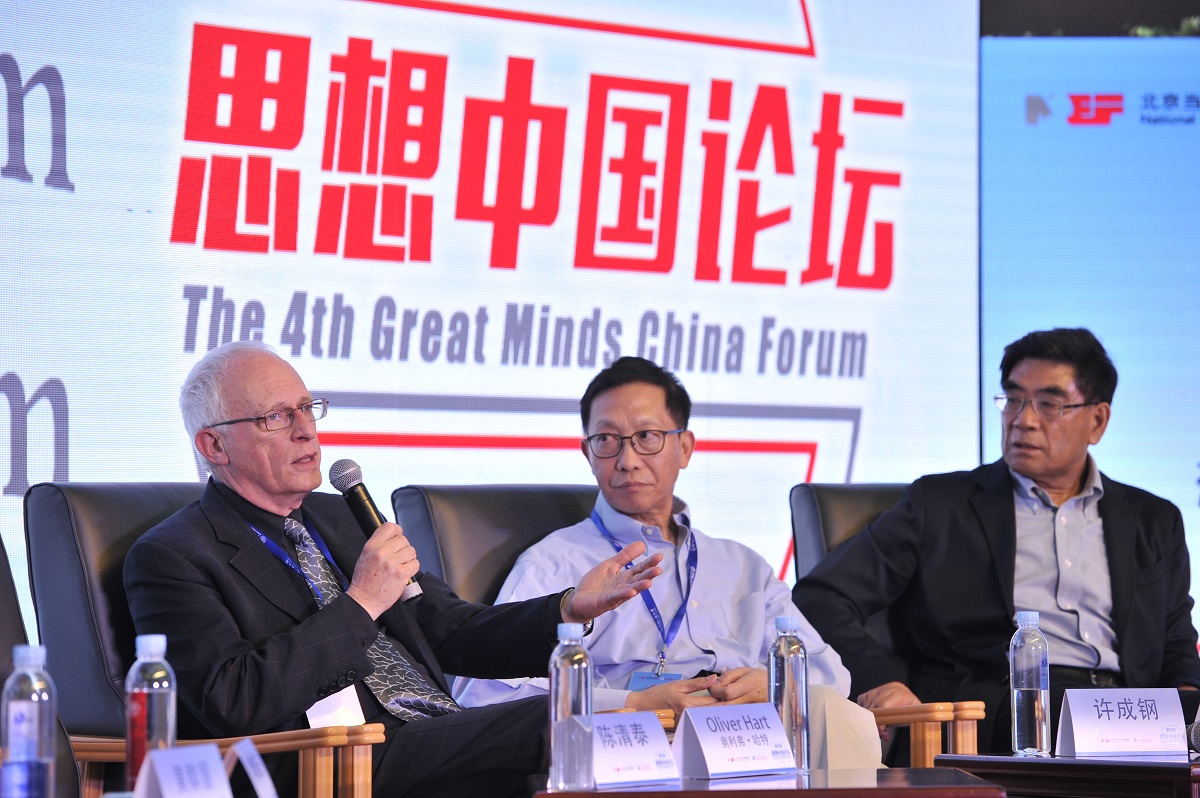
In the roundtable forum, Xu Chenggang, Professor of Economics at Cheung Kong Graduate School of Business, Li Weian, former President of Tianjin University of Finance and Economics and Professor Nankai University, Huang Junhui, Director of the Institute of Industrial Economics, Chinese Academy of Social Sciences, Fu Chengyu, Member of the Standing Committee of the Twelfth National Committee of the Chinese People's Political Consultative Conference and former Chairman of the China Petrochemical Corporation and other guests conducted in-depth exchanges and discussions on issues such as the company’s property rights theory and mergers and acquisitions, residual control rights and property rights reform of state-owned enterprises, and optimal bankruptcy procedures and debt-to-equity swaps.
The forum brought together the top theorists and outstanding state-owned entrepreneurs at home and abroad. In the sharing of ideological achievements, it not only displayed the international frontiers of macroeconomics and institutional economics, but also put forward several feasible policy suggestions and countermeasures to the realities of China’s state-owned enterprise reforms. Nearly 500 listeners from the government, enterprises, universities, research institutes and the media attended the forum.